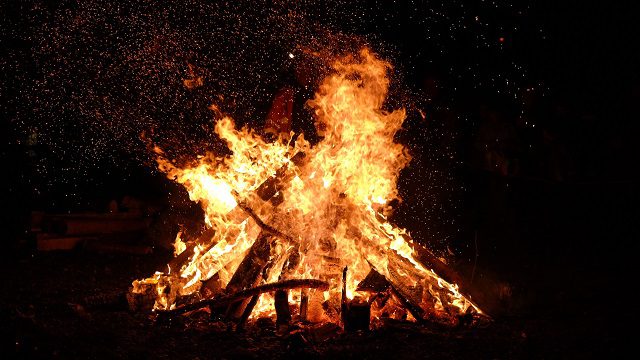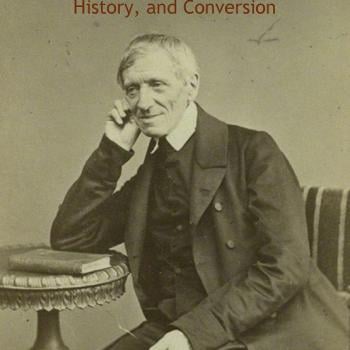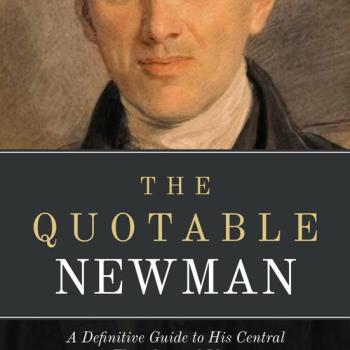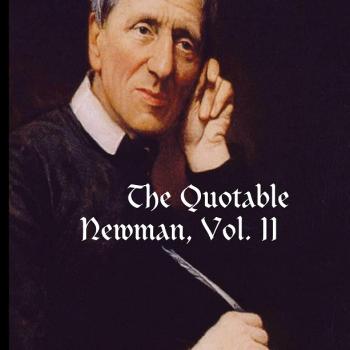Pondering the Analogy of Not Burning “Murderers of Souls” to Recent Popes’ Opposition to All Capital Punishment

The following came about as a result of a critique from a Catholic of my recent article, “Why Have Popes At All if We Reject Papal Guidance?” It was described as “facile” and lacking “nuance.” Someone else in the same Facebook thread also made the “rhetorically inevitable” charge that I am an “ultramontane” (which I predicted in the aforementioned paper would be the case).
The thread was private, and so I can’t quote all my critic’s words. If I asked his permission, he would probably deny it. I’m too lazy to paraphrase his arguments, so readers will have to surmise what he said, that I am replying to. I’ll try to edit my words so they won’t be overly confusing or mysterious. The analogy to burning heretics that I make here is an elaboration upon an argument I made in another recent paper: “Burning Heretics, Frying Murderers, & Slavery (Analogies).”
*****
Did it also undermine “centuries of Catholic teaching” when the Church decided to stop killing heretics? Would you have fought that development on the same basis?
After all, the heretics were murderers of souls: far worse than murdering a body. It was unthinkable to be tolerant of them. Even God killed two in the New Testament (though for blasphemy and not heresy: lying to the Holy Spirit), through the instrument of Peter (Ananias and Sapphira: Acts 5:1-11).
***
I didn’t ask you to do a sociological analysis of why it happened (my major, by the way). Since when has the Church cared about secularism (Humanae Vitae comes to mind, particularly)? If that was our concern, we would have transformed ourselves into Anglicans centuries ago.
The cessation of heretic-killing either “seemed to undermine centuries of Catholic teaching” or it did not (just as you say this current proclamation does). Which is it? It’s rather directly analogous: it has to do with a practice — a subset of the category of capital punishment — that was widely sanctioned by the Church for many hundreds of years and upheld by the highest authorities (people like Aquinas).
Then, lo and behold, the Church in her wisdom decided at length that she should no longer do it. Likewise, religious liberty was treated very differently in Vatican II, to the eternal consternation of reactionaries.
That’s quite striking, and in my mind, exactly like what we currently see. Why was it right and the current modification wrong and to be disobeyed and sneered at? I want to know.
Why in the world would the Church have ever ceased advocating capital punishment for heresy? Why would it go from that position (held by scores of great saints and Doctors) to one in which it only advocates death for murderers of bodies and not for murder of souls?
And how is that cessation any different in essence or in kind from the current notion of ceasing the death penalty because of a concern for a more consistent application of the spirit of the Gospel of Life and the intrinsic value and infinite worth of every human being: even the hardened or brutal, evil criminal? Why would you not oppose that if you oppose this (now)?
I don’t see any essential difference (indeed, little difference at all), and you have not shown that there is one. Yet it seems to me that you would have to, because you accept one change and reject the other. In other words, my argument serves as a (I think, rather strong) reductio ad absurdum of your position, and you have not overcome it.
***
Pope Francis has never said that capital punishment is intrinsically evil. He cannot, because that would be a massive contradiction of past Catholic teaching.
If that was his rationale or Pope St. John Paul II’s or Pope Benedict XVI’s, none of them would have written in context about circumstantial / contingent factors (abilities of countries to constrain sufficiently / efficiently criminals in penal systems). Those things would have been irrelevant: just as the wrongness of abortion, which is intrinsic, is not tied to situations. It’s wrong everywhere and always.
You still have not overcome my analogy / reductio. Applying any given teaching is a different question from the nature of the teaching itself, and the principles involved. If you think this was a wrong move, you should also (logically / consistently) think that the other thing also was.
Three straight popes (one a saint) have expressly declared it (the last two looked forward to expected complete abolition, as I recently documented). But millions of Catholics feel completely comfortable with saying (quite pontifically): “I don’t give a damn. They’re wrong.”
They’re simply thinking like Protestants or dissident Catholics. It goes back to my “facile” article: why have a pope if we simply thumb our noses at their proclamations? That’s not being ultramontane or “simplistic” or lacking “nuance”: it’s a straight, serious, rather obvious observation, from a former Protestant who understands firsthand how the two camps variously view Christian authority.
We make things far more complicated than they are. Orthodox Catholics by nature follow the lead of popes and councils and the Mind of the Church. Protestants and cafeteria Catholics do not, according to when they (in the final analysis, arbitrarily) decide they do not want to. That is private judgment according to Protestantism and dissident Catholicism, not the Catholic rule of faith.
Many Catholics are thinking in very unCatholic terms not out of bad will, but because they haven’t adequately thought through the issues. They’ve been unduly influenced by non-Catholic modes of thought, and the usual modernism that always seems to creep in everywhere.
That’s my sincere opinion. My reasoning is regarded as “ultramontane” and “facile”. I respond that the thinking of my critics is unduly influenced by secularism and non-Catholic outlooks. And I say that as a professional apologist, who has been intensely studying these sorts of issues for now 28 years.
***
Let me ask: if we can simply disregard this statement, that is now part of the Catechism, how many others can we treat in the same way? What would be examples of other parts of the Catechism that are rejected? I’d like to know.
Is it not obvious that there is no end to that? The Catechism is “a sure norm of the faith.” If we make ourselves the ultimate arbiters of almost every papal statement, and the Catechism and councils (many reactionaries and theological liberals alike pick and choose what they like and reject regarding Vatican II); if there could be a wholesale rebellion against Humanae Vitae 50 years ago (and that is definitely infallible teaching), where does it end?
I guess in this mentality we’re all like the President and the pope is a trusted, “wise” esteemed adviser, but in the end we have the final say and authority, and so we can simply reject his counsel.
That’s how it works for many Catholics today, and of course this is (in instances of dissent) obviously placing one’s own judgment and authority higher than that of the pope, and reduces the pope to little more than a local pastor, with whom we supposedly have every right to disagree in good conscience if needs be (except that I did that once in my Protestant days and was renounced from the pulpit for doing so).
***
I don’t see any difference, really, between this and that of Martin Luther at the Diet of Worms in 1521:
Unless I am convicted by Scripture and plain reason (I do not accept the authority of popes and councils because they have contradicted each other), my conscience is captive to the Word of God. I cannot and will not recant anything, for to go against conscience is neither right nor safe. Here I stand, I can do no other, so help me God. Amen.
He put himself higher than popes and councils, and that has been the Protestant rule of faith ever since. So it’s quite odd and ironic that now millions of Catholics appear to think in the same fashion (at least selectively, according to topic), and to not even be aware that they are doing it.
Those who don’t learn from history are doomed to repeat it . . .
***
Photo credit: Jens Mahnke [Pexels.com / “All photos on Pexels can be used for free for commercial and noncommercial use”]
***













